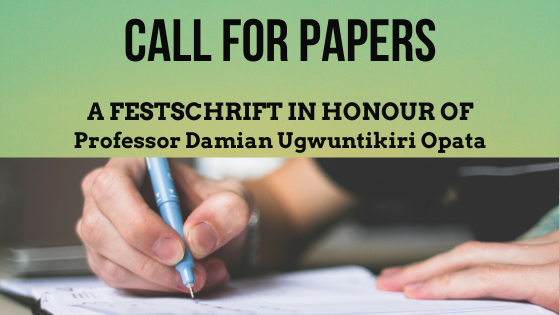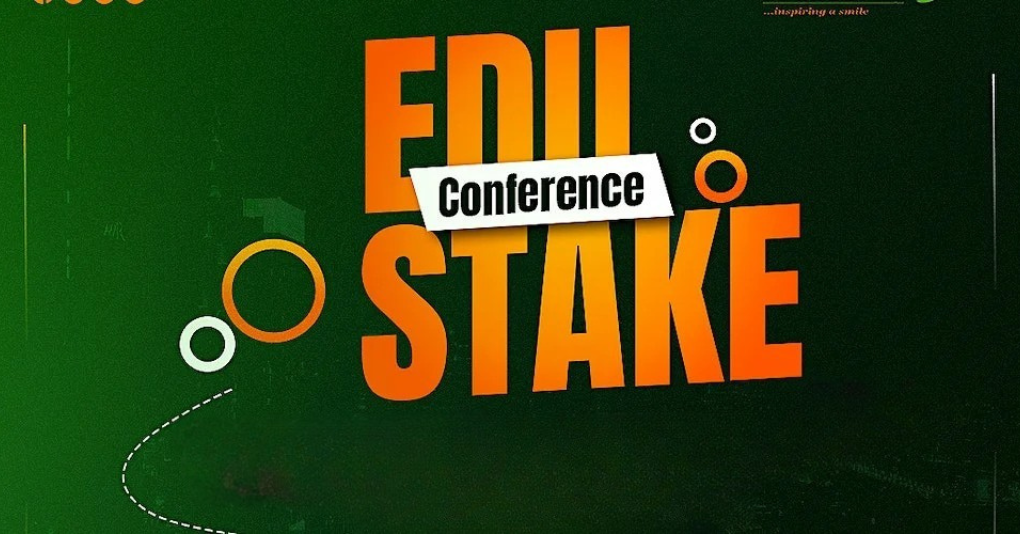Call For Papers: A Festschrift in Honour of Professor Damian Ugwuntikiri Opata
"Coloniality of Knowledge, Cultural and Textual Productions in Africa: Treaties in Honour of Damian Opata"
Professor Damian Ugwuntikiri Opata is one of the cognoscenti in literary and African studies. He dedicated almost five decades of fruitful scholarship to reclaiming the tainted African systems of rationality. His critical oeuvre is a moving force in the foregrounding of coloniality and cuts across African literature, postcolonial discourse, decolonization of African knowledge production systems and so on. His efforts as a scholar, thinker and critic have linked the works of African writers and critics to new frontiers of knowledge as they often offer him a platform to interrogate the systemic dependence on Western thoughts. As Professor Opata retires from the employ of the University of Nigeria, Nsukka, it becomes imperative to honour this scholar with the publication of world-class treaties that will focus on coloniality and decoloniality, the paths his scholarship has broadened and reshaped. The publication hopes to address the question of coloniality in knowledge, cultural and textual productions, including: literature, language, music, fine arts, performing arts, history, philosophy, religion, anthropology, and so on, as well as the theorizations of these areas of knowledge.

Topics may include but are not limited to:
- The Coloniality of Literature and Cultural Products in Africa
- The Politics of Language and Literary Studies
- Differential Power Relations, Gender, Sexualities, and Queer
- Identities, Hybridization, Migration and Globalization
- Ideology, Theatre, Performance, and the African Society
- Folklore, Orature and Social Reconstruction
- Imperialism, History, and Narrative as Forms of Power
- Centre-Margin Relations and the Critique of Coloniality of the African Being
- Theorizing from the Global South beyond the Postcolonial
- Literary Pedagogy in Africa and Coloniality
- Decolonial and Postcolonial Critiques as Affirmation of Coloniality?
- The Author, the Text and the World
- Nativism, Nationalism and Cosmopolitanism
- Coloniality, Religion and Mental Revolution in Africa
- Universality, Difference, Representation and Resistance in the Era of Global Capitalism
- Translation, Naming, and Colonial Epistemology
Scholarly and well-researched papers that address specific research problems are invited from interested researchers. Please adhere to the following guidelines:
- The paper has to be relevant to the central theme or sub themes of the book
- The paper should follow the 8th edition of the MLA Handbook, Times New Roman, 12 font size and double line spacing of MS Word
- The paper should be accompanied by an abstract (200-250 words) and the author’(s) institutional affiliations referenced
- The paper should be between 6,000-9,000 words, including the works cited
- The last date of submission is 31st December 2020
- All submissions should be sent to: [email protected]
For Inquiries, contact the Editors:
Dr. Romanus Nwoma
Department of English and Literary Studies, Alex Ekwueme Federal University, Ndufu – Alike, Ikwo, Ebonyi State
Phone: 08037825257, Email: [email protected]
Dr. Dina Yerima
Department of English and Literary Studies, University of Nigeria, Nsukka
Phone: 08066967543 Email: [email protected]
Onyeka Odoh
Department of English and Literary Studies, University of Nigeria, Nsukka
Phone: 08162125815
CONCEPT NOTE
Africa has been in contact with the West from as early as the 15th century for trade purposes, explorations and adventure. However, no contact is as momentous as the 19th century European colonization of Africa because of its combined economic, political and social interest. To achieve this interest, Western imperial forces, as Hussein Bulhan observes, ‘assaulted’ Africa on three fronts: ‘assault on the world of things’ (the displacement that followed the European conquest and forceful occupation/exploitation of African lands/resources); ‘assault on the world of people’ (colonial use of force/free labour of the Africans); and ‘assault on the world of meaning’ (changing the indigenous religion, knowledge system and identity)’ (Bulhan, 2015: 242). In all this, the psychological implication of colonialism is the most deleterious on the colonized, as Franz Fanon pursues in his The Wretched of the Earth. Once a people’s sense of identity has been eroded, it becomes easy to replace that sense with different fabricated falsifications that fit into the stereotypes that justify the oppression of such a people, in this case, Africa.
The stature and relevance of coloniality as a philosophy across the global south is ubiquitous across disciplines. The humanities and social sciences together with arts and society from which they draw their subject are the front liners of this trajectory of scholarship. Art and knowledge production from the philosophical stand point of coloniality evoke questions which developing nations on the African continent and indeed other continents in the global south- Asia and South America, ask. Simply put, coloniality involves the foregrounding of art, the intellectual and cultural reasoning which recognize that there is a ‘continuity of colonial forms of domination after the end of the colonial administration produced by colonial cultures and structures in the modern/colonialist capitalist world system’ (Grosfoguel 13, 14). Taking impetus from it to some extent, are ideas of decolonisation, postcolonialism, de-exploitation and self-sufficiency. However, coloniality’s distinction from the above is its insistence on the continuity of colonial structures, what Bulhan calls ‘meta colonialism,’ in the framing of power relations between the formerly colonized and former colonizers in all areas. Thus issues from artistic creation and urbanisation to economic policies, international relations to development and provincialization of ideas among others are covered in coloniality.
The coloniality of the structures of knowledge, cultural and textual productions in Africa, which include but are not limited to the manner of composition, publishing and consumption of the literary arts (in critical and creative dimensions), music, applied arts, history, language, philosophy, religion, and so on, even the theorizations about them constitute the focus of this festschrift.
Ideas can be drawn from, but are not limited to the following works of Professor Opata:
- Ekwensu in the Igbo Imagination: A Heroic Deity or Christian Devil? (2005)
- Faith, Culture and Individual Freedom (2011)
- Ajija: An Igbo Agent of Death and Destruction (2009)
- Towards the Geneology of African Time (2002)
- Essays on Igbo World View (1998)
- Delay and Justice in the Lore and Literature of Igbo Extraction (2008, Inaugural Lecture)
- Major Themes in African Literature (2000, Edited book with Aloysius Ohaegbu)
Share this post





Be the first to comment on this post